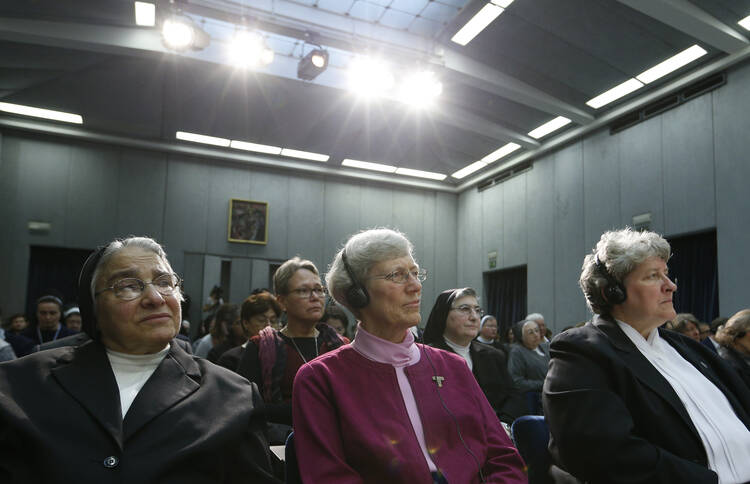The recently released Apostolic Visitation Final Report acknowledges the challenges of contemporary vocation promotion for women religious. This was also confirmed in the now landmark 2009 “Study on Recent Vocations to Religious Life,” commissioned by the National Religious Vocation Conference (NRVC) in collaboration with the Center for Applied Research in the Apostolate (CARA). The challenges of an aging, diminishing population, coupled with fewer entrants, present unique opportunities to religious congregations in their desire to attract a newer membership, who tend to be more educated, a bit older and more culturally diverse. What sometimes is forgotten is that although they are fewer in number, by the grace of God, women continue to respond to the call to religious life in the Catholic Church. In fact, it is estimated that there are 1,200 women currently in religious formation in the United States with several thousand more seriously discerning a religious vocation each year.
The findings in the Final Report are also similar to what NRVC learned in its “Women Religious Moving Forward in Hope” program, a series of four gatherings of vocation directors and major superiors from the two leadership conferences (LCWR and CMSWR). The goal of this program was to have sisters from diverse traditions, charisms and spiritualties, explore individual and common vocation efforts in response to the 2009 vocation study. Through a facilitated process of respectful dialogue, the sisters expressed a desire to define clearly their identity as women religious as different from the laity and those in other forms of consecrated life. They recognized the need for reconciliation among sisters themselves, were grateful to dialogue with women from both conferences and desired to work together for their common future. They saw the need for a revitalization of their communities and desired to work with parishes, dioceses and church leaders and minsters to expose youth and young adults to this unique form of discipleship in the church.
Thus, the Visitation report affirms in many ways what many women religious already know and what they have worked to address (admittedly, some more proactively than others).
What is truly hopeful is the Holy See’s commitment to “engage in respectful and fruitful dialogue with” women religious so as “to transform uncertainty and hesitancy into collaborative trust.” Religious sisters are an essential and formidable force in the life of the church. They have managed hospitals, schools and universities and have forged innovative, effective ministries to meet the needs of the poor with little money, but with great vision and determination. I applaud the Congregation’s acknowledgement of the structural, cultural, and financial challenges women’s religious institutes face in attracting and retaining new members. I am especially heartened by the Congregation’s very clearly stated commitment to work with Pope Francis to find expression for “feminine genius” and a role for women in “decision making in the different areas of Church life.”
During this Year of Consecrated Life, Pope Francis invites all religious to look to our future with hope. If this final report furthers the realization of honest dialogue and greater collaboration among religious and church authorities, then the future of religious life will be stronger. This will benefit not only religious institutes, but the church and the People of God as well who have always relied on the faithful service and inspiring lives and witness of our sisters. What could more hopeful than that?
Paul Bednarczyk, C.S.C., is executive director of the National Religious Vocation Conference.








